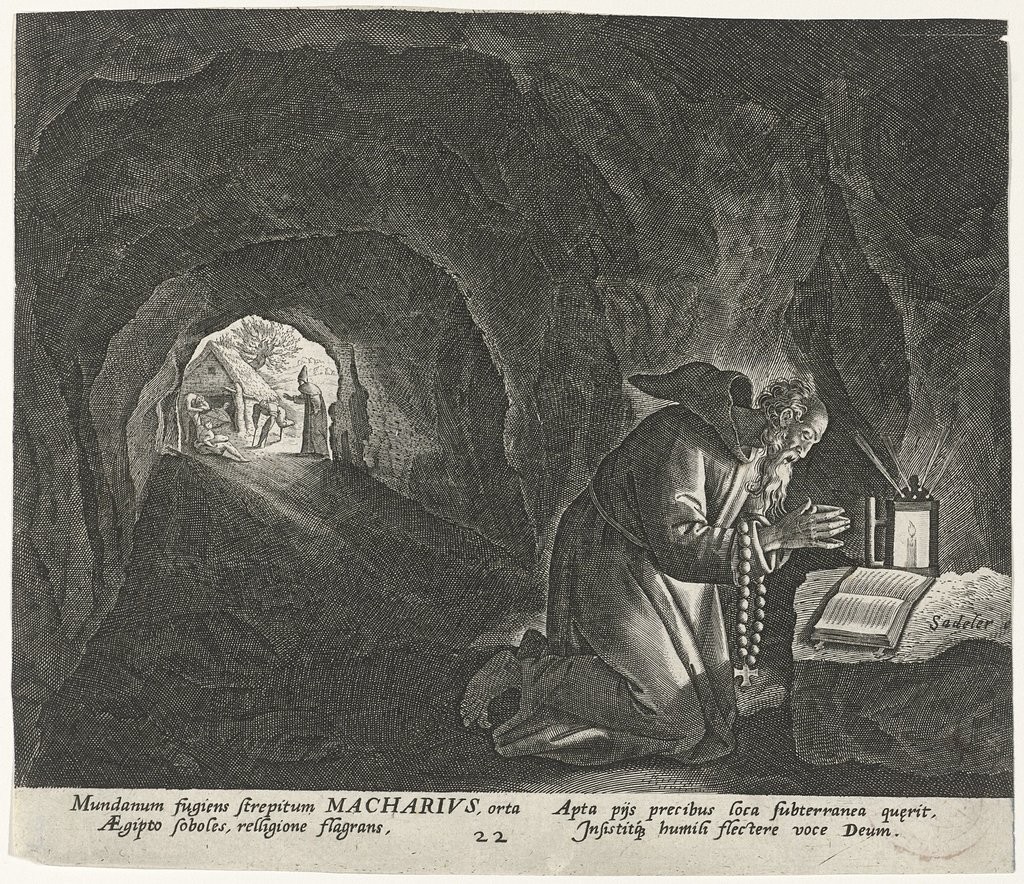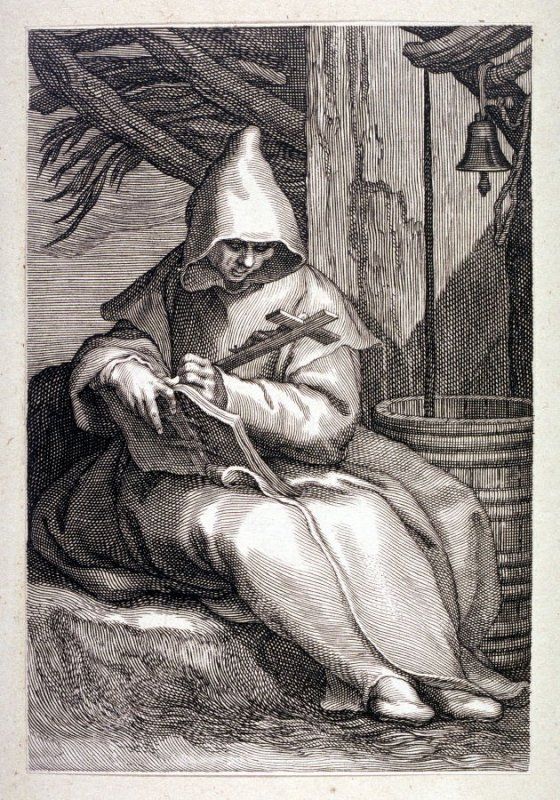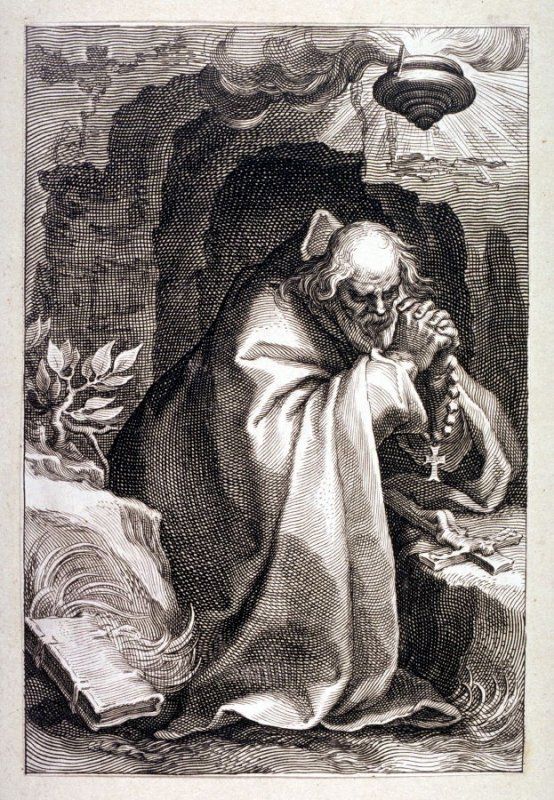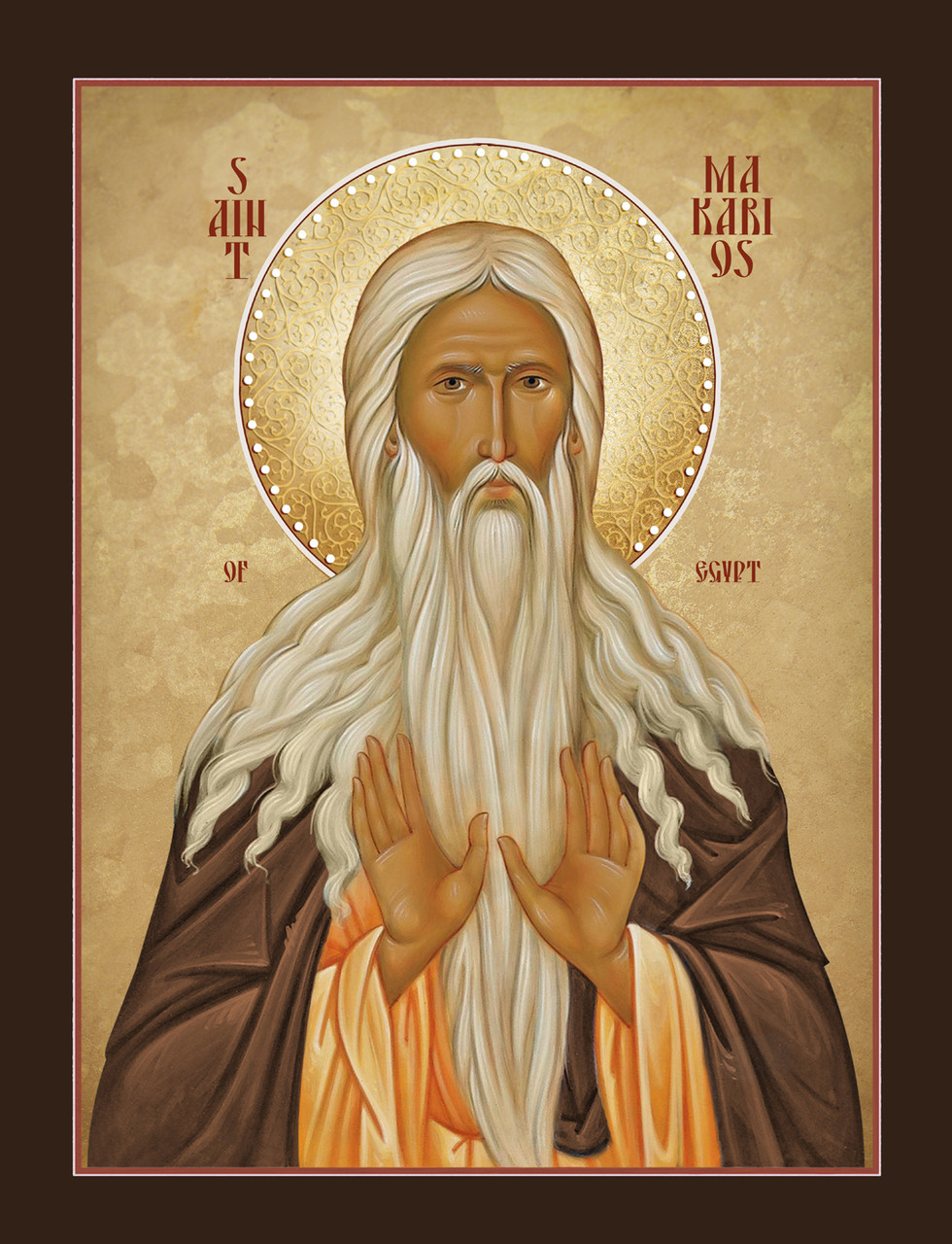“Take heed and have care for your soul. It is fitting that you forsake worldly life.”
Macarius was born in lower Egypt near the village of Ptinapor around 300 AD. He tended cattle as a boy and later as a young man, he constructed a cell where he prayed for long periods of time. He made his living smuggling saltpeter, a meat preservative, in the area of Nitria. This taught him how to survive the wastelands of the area.
He was known amongst his friends and family as a “the young man with the elder’s wisdom.”
At the wish of his parents, he entered into marriage but was soon widowed. Shortly after, his parents passed as well, and he distributed all of his money among the poor and needy. Through prayer, he found a guide in an experienced Elder, who lived in the desert not far from the village. He was guided in the spiritual sciences, fasting, and prayer.
The local bishop arrived at Ptinapor, and knowing of Macarius’ virtuous life, tried to ordain him against his will. His hermitic life was disrupted, and he therefore ventured off in secret. He was tempted by demons and the devil with sinful thoughts and physical attacks. Macarius repelled them with prayer and the Sign of the Cross.
He returned, and evil convinced the people to slander him. He was accused of seducing a woman and dragged out of his hermetic cell and jeered. He endured with great humility, remained silent, and sent what little money he had to the pregnant woman. The woman began to suffer torment until she confessed that she had lied, and her parents went to him and asked for forgiveness. Others did the same, but he shunned their praises. This was a major turning point for him, and he fled, spending 7 years in the desert.
At the age of 40 he visited with Anthony the Great, learned monasticism, and was ordained a priest. The fame of his sanctity drew many followers and a community developed around him.
During the Arian heresy, he was banished to an island in the Nile for a short time, along with others, by the Arian Emperor and Bishop during a dispute over the doctrine of the Nicene Creed. The pagan people of the island were so impressed with their works and virtue that they stopped their pagan prayers and constructed a church. When word reached the Emperor and the Bishop, they were so impressed by their good works that they were allowed to return and welcomed by thousands to their community.
He led the desert community for the rest of his life. He preached that earthly life has only a relative significance to prepare the soul, making it capable of perceiving the heavenly Kingdom, and establishing in the soul an affinity with the heavenly homeland.
He died at the age of 90 within his community in the year 390.
“For those truly believing in Christ, it is necessary to change and transform the soul from its present degraded nature into another, divine nature, and to be fashioned anew by the power of the Holy Spirit.”
His feast day is January 15
For God’s Glory.



